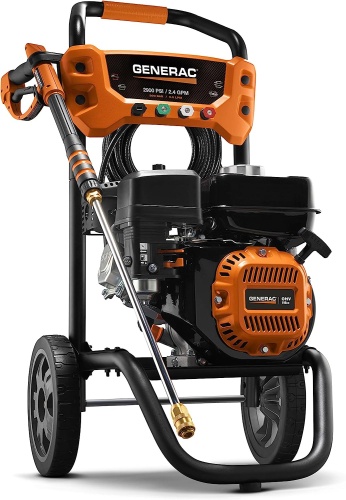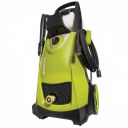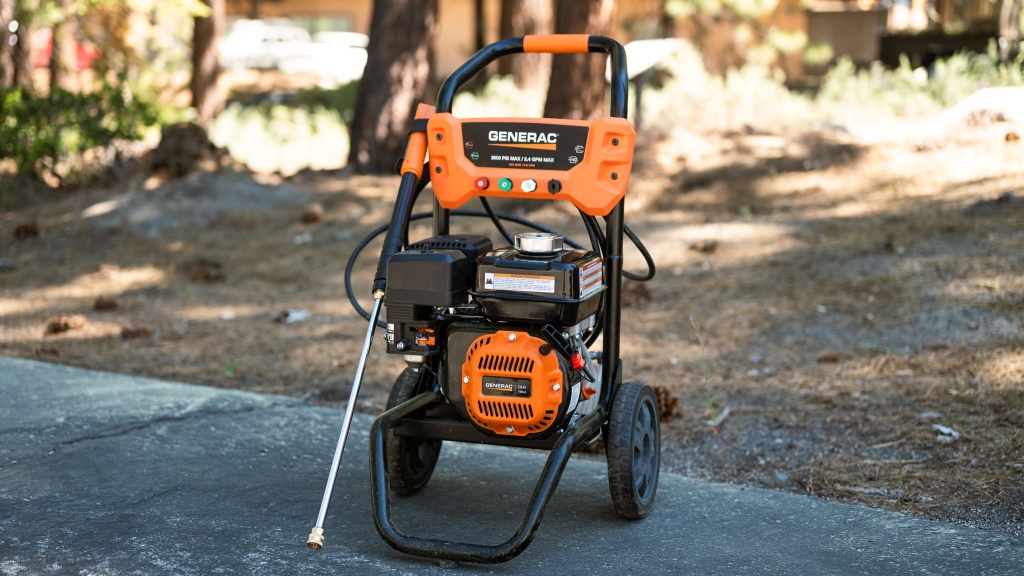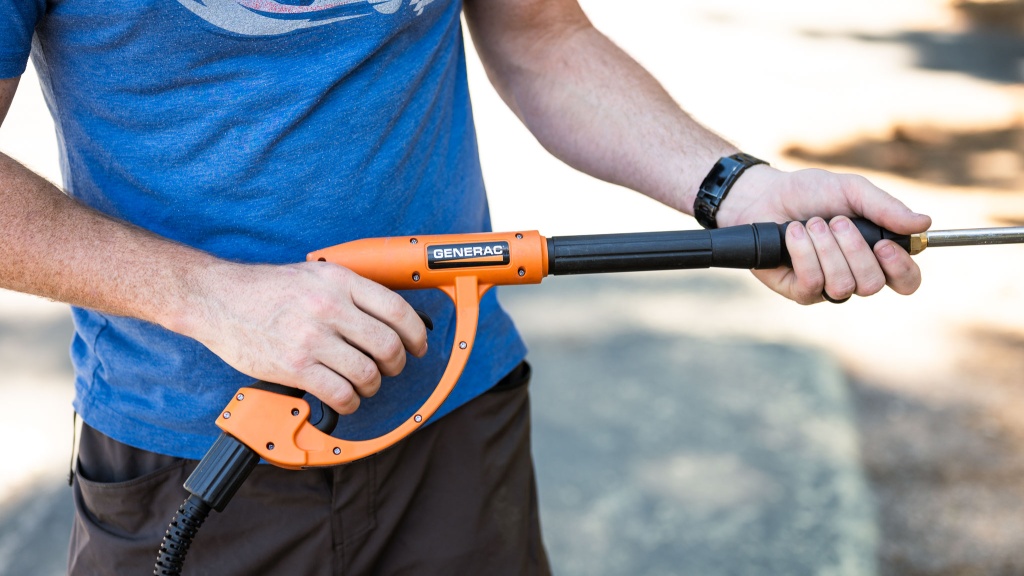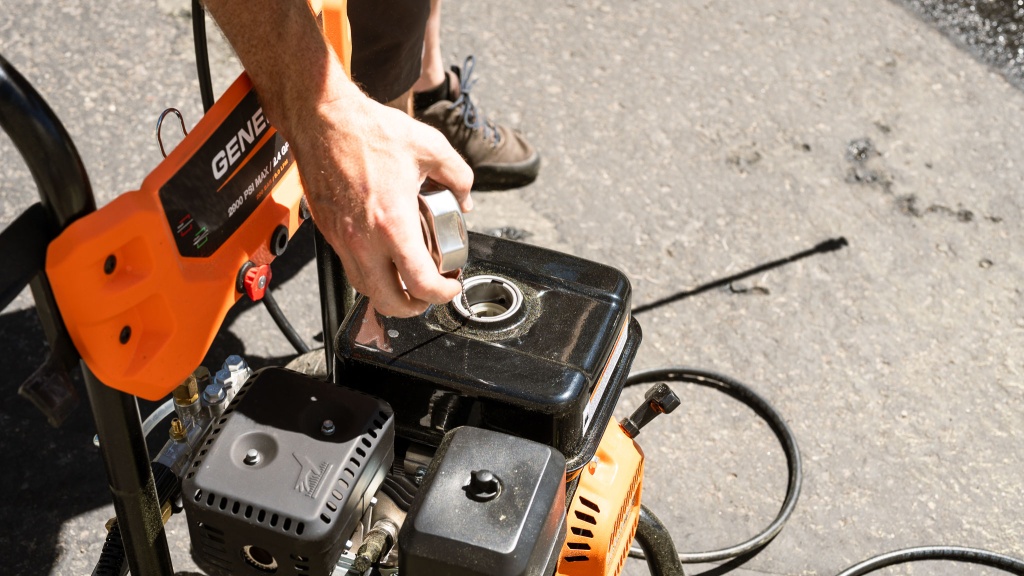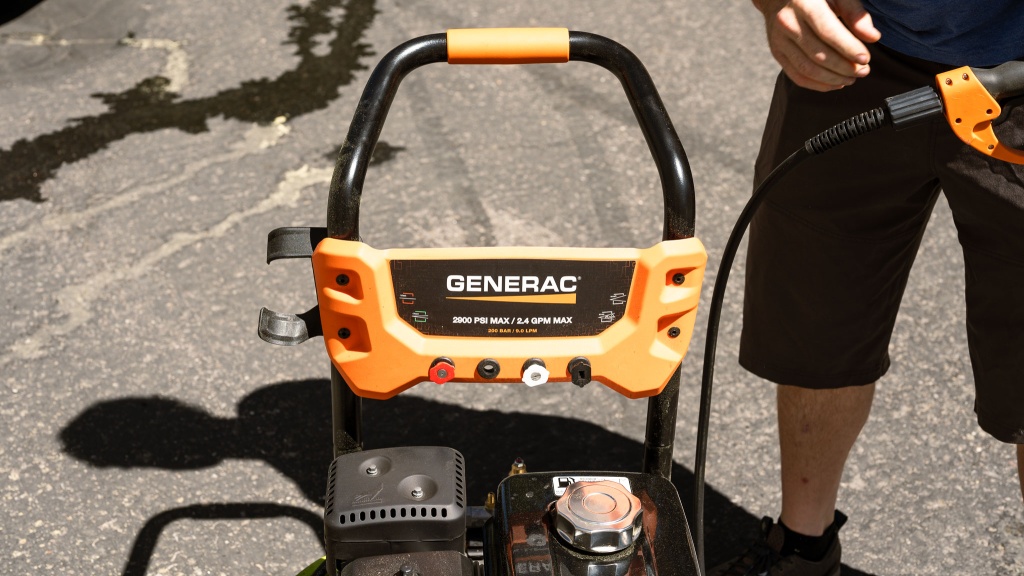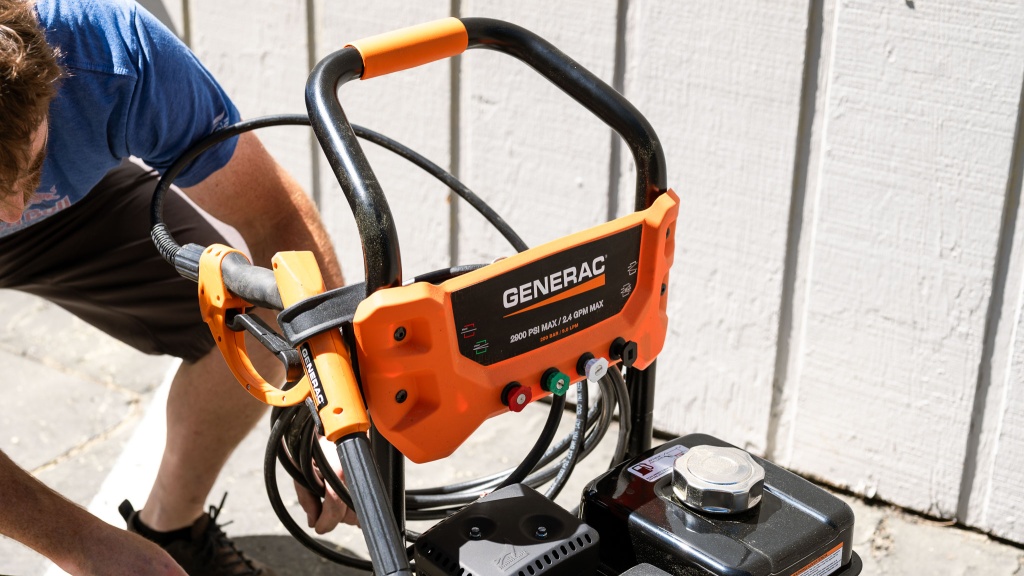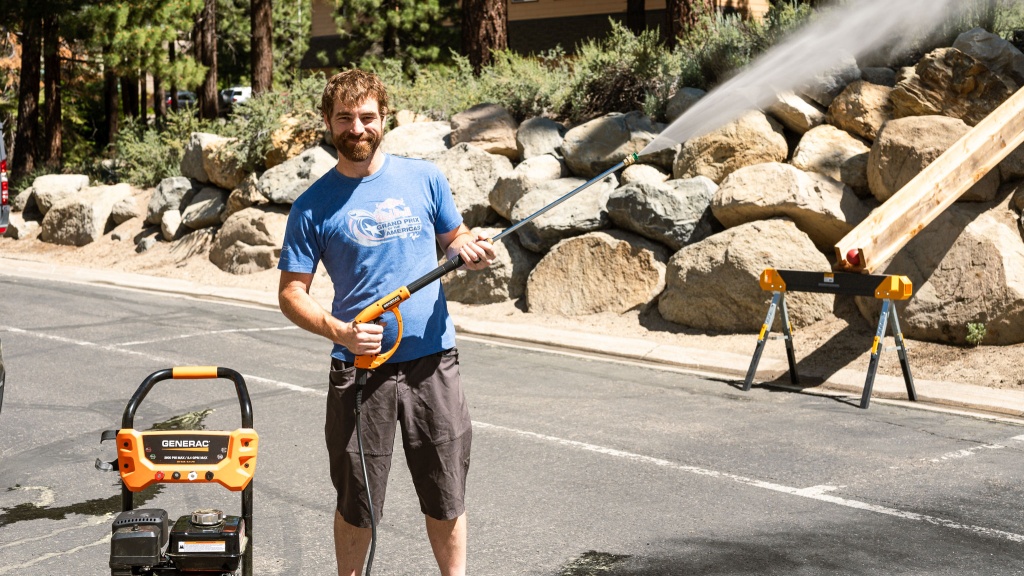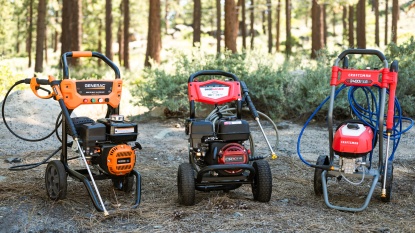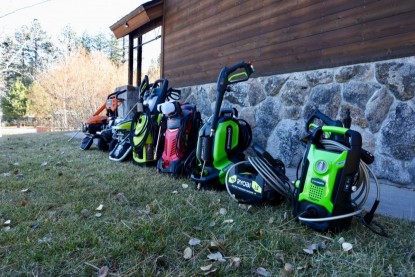Generac 8874 Review
Our Verdict
Compare to Similar Products
 This Product Generac 8874 | |||||
|---|---|---|---|---|---|
| Awards | Best Gas-Powered Pressure Washer | Best Bang for the Buck | Best Electric Pressure Washer | ||
| Price | $379 List | $349 List $315.97 at Amazon | $160 List $109.99 at Amazon | $279 List $273.42 at Amazon | $199 List |
Overall Score  |
|||||
| Star Rating | |||||
| Bottom Line | This unit cleans powerfully and rolls around easily | No job is too tough for this high performance gas-powered pressure washer | Good at cleaning and easy to carry, this is a high-value option | We recommend this device for those that are searching for a pressure washer sans fossil fuel | If you want a model that performs decently but won't take a toll on your bank account, this model is a great choice |
| Rating Categories | Generac 8874 | Westinghouse WPX3200 | Wholesun 3000PSI | Sun Joe SPX3500 | SunJoe SPX3000 |
| Cleaning (45%) | |||||
| Portability (30%) | |||||
| Noise (15%) | |||||
| Ease of Use (10%) | |||||
| Specs | Generac 8874 | Westinghouse WPX3200 | Wholesun 3000PSI | Sun Joe SPX3500 | SunJoe SPX3000 |
| Measured Pressure | 2100 psi | 2600 psi | 1200 psi | 1650 psi | 1200 psi |
| Electric or Gas | Gas | Gas | Electric | Electric | Electric |
| Measured Flow | 2.14 gpm | 2.3 gpm | 1.21 gpm | 1.08 gpm | 1.22 gpm |
| Measured Cleaning Units | 4486 | 5980 | 1452 | 1782 | 1464 |
| Measured Distance in Bocce Ball Power Test | 5.0 feet | 6.5 feet | 3.0 feet | 3.0 feet | 3.5 feet |
| Measured Cleaning Time | 3.2 min | 2.8 min | 4.7 min | 6.1 min | 5.3 min |
| Measured Decibels at Machine | 93.0 dBa | 83.2 dBa | 73.3 dBa | 70.0 dBa | 83.8 dBa |
| Measured Weight | 62.2 lbs | 63.6 lbs | 16.3 lbs | 42.6 lbs | 28.2 lbs |
| Measured Electrical Cord Length | N/A | N/A | 32.5 feet | 30 feet | 35.3 feet |
| Overall Size | 35.5" x 24.5" x 19" | 38.5" x 25.5" x 19.75" | 27" x 10.5" x 9.5" | 35.5" x 16" x 15" | 34" x 13.5" x 17.5" |
| Measured Length of Hose | 25.3 feet | 25 feet | 20.3 feet | 20 feet | 20.3 feet |
| Nozzles Available | 0°, 25°, 40°, and soap | 0°, 15°, 25°, 40°, soap | 0°, 15°, 25°, 40°, and soap | 0°, 15°, 25°, 40°, soap | 0°, 15°, 25°, 40°, soap |
| Manufacturer Pressure | 2,900 psi | 3,200 psi | 2,150 psi | 3,000 psi | 2,030 psi |
| Manufacturer Flow | 2.40 gpm | 2.50 gpm | 1.58 gpm | 1.48 gpm | 1.76 gpm |
| Wheels | 10" Hard Plastic Wheels | 12" Plastic | 5" Plastic | 8" Plastic | 7.5" Plastic |
Our Analysis and Test Results
The Generac is the easiest-to-use gas-powered pressure washer we've tested. Its intuitive setup and portability make it a popular option among our test team. Though it's not quite as powerful as the top gas options and is louder than most, we wouldn't be sad to own this machine.
Performance Comparison
Cleaning
As a general rule, gas-powered pressure washers are more powerful than electric options. The Generac is no exception, besting every e-option in the test and performing well in comparison to the other gas models. It has a lot of raw power but performed a little less aggressively than the other gas options in our cleaning tests.
There is a caveat. We normally conduct these tests with the 15-degree nozzle, which most models include in their accessories. Over years of testing, we've found that it offers the best mix of water volume and pressure. The Generac does not come with a 15° nozzle at the time of this publication –- only 0, 25, and 40-degree options and a soap nozzle. We opted to test the Generac's 25° nozzle against the other washer's 15° option. That means the water stream is wider but less pressurized and aggressive. When we used the Generac with an ill-fitting 15° option from another machine for unofficial trials, it did post more powerful results. But we test the machines as they come.
Since powerful cleaning is the main point of a pressure washer, we conduct three separate cleaning trails. The first is cleaning speed. After adding a thin layer of activated charcoal to a bright white carpet, we time how long it takes each washer to remove the grime.
The Generac blazed a wide path through the carpet, blasting the charcoal out of the carpet fibers in one pass. Using it instead of the electric options we tested saves time. It was slower to clean the carpet than the other gas options by about 30 seconds with a less aggressive nozzle. We found that performance fairly impressive.
Next, we measured each washer's cleaning units (CU), which you can find by multiplying the nozzle pressure (found using an independent pressure gauge) by the number of gallons it sprays in a minute. The Generac has 4,486 cleaning units with a pressure reading of 2,100 pounds per square inch (PSI) and 2.14 gallons per minute (GPM). That's over twice the cleaning units of any electric option, though it couldn't match the other gas options in the test.
The last cleaning test is launching a bocce ball up a 24 to 26-degree ramp and measuring how far it goes. The Generac's bocce ball made it 5 feet using the 25° nozzle. Again, better than the electric versions but not as strong as the other gas-powered washers.
We borrowed a 15° nozzle to try, earning the Generac another foot. That wasn't accounted for in the official results, though, and other gas options went even further. Still, it's a powerful cleaning machine.
Portability
On the small side of a gas-powered pressure washer, the Generac is compact, with a 465.5 square inch footprint. That size is comparable to several of the electric options in our tests, but it doesn't help the Generac escape the weight penalty of a gas engine. It weighs 62.2 pounds, at least 20 pounds more than most electric options.
Thanks to its sturdy, 10" hard-plastic wheels, this washer is relatively easy to move around. Its balanced weight makes it easy to push or pull, and the wheels track over dirt or asphalt. A tall, plastic-covered handle provides leverage. The lack of an electric cord means you have one less thing to tangle with and an unlimited range.
Our biggest complaint when moving the Generac is dealing with its wand, which balances loosely in a holster at an angle. It juts out from the machine, and we frequently find ourselves either carefully accommodating its placement or accidentally knocking it into things in crowded spaces.
Noise
Gas engines are loud and run even when the washer is in standby mode. Electric versions are often quieter and only make noise while spraying water. Even by normal gas standards, the Generic is noisy. We measured decibels (dBA) with a meter directly beside it and 25 feet away.
The meter read 93 dBA beside the machine while running. When the engine is idling, the noise drops down to 84 dBA. At 25 feet, we measured 80 dBA. We didn't notice any high-pitched whining or low rumbling. We just heard the engine. If you end up going with a powerful gas engine that's this loud, consider ear protection.
Ease of Use
Though straightforward, the Generac requires more setup and maintenance time than electric options. You have to buy gas and oil, maintain the engine, and use a pull cord to get it started. It takes us between one and three pulls to start the engine when it's cold. After it warms up, it usually fires on the first try.
Unfortunately, the pull cord is low quality. It broke the fourth time we pulled it. We picked up a higher-quality replacement cord on a quick trip to the hardware store for 50 cents a foot. We also called Generac's customer support. They were helpful and shipped a cord assembly for easy replacement. Shipping delays have kept it from arriving in time to review.
Otherwise, the Generac has a solid motor. It's accessible and would be fairly simple to winterize if need be. You will need to change the oil after every 20 hours of use, the air filter after every 50, and the spark plug after 100 hours. That's all pretty standard maintenance for a gas engine pressure washer.
We also looked at how easy it is to attach your water hose to the washer. The process is cumbersome. The area around the port is crowded, tucked under the wand hose connection point. It takes more effort and attention than we'd like. Luckily, it's clear of the engine and any dangerously hot elements that could burn you or the hose.
The Generac provides a small, clear siphon hose to add soap to your washer. Just place it in a bucket with soap and you're good to go. The bucket makes it harder to move the setup around, though. And if the hose pops off and gets lost, you'll have to track down a replacement.
Built-in storage for the spray hose and nozzles works well and keeps your tools close at hand. A generously sized wire hook holds the coiled hose under the handle and out of the way. A larger hook would make it easier to wrap the hose tidily, but it works.
The nozzle tips slide in and out of a caddy beneath the handle. Though there are infographics to help you remember where each one goes and what it does, they aren't incredibly clear. Sometimes it takes us a minute to figure out which one does what. The nozzles have quick disconnects that make them a cinch to switch out from the wand itself.
We also tested each machine's stability, pulling on hoses from several angles, knocking the handle around, and pulling and pushing it quickly around turns. With its low center of gravity, this machine is very stable.
Should You Buy the Generac 8874?
Overall the Generac is a great little gas-powered machine, and we consider the price tag pretty reasonable. If you want the power of a gas engine in a more compact package to save on floor space, this could be the right unit for you.
What Other Pressure Washers Should You Consider?
The Westinghouse WPX3200 Pressure Washer is a much more powerful gas pressure washer. It's quieter than the Generac and is nearly as easy to move around. It is larger, however, and a little less intuitive to use. If you want a more compact option and don't need crazy amounts of power, consider the electric Wholesun 3000PSI.


